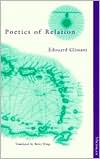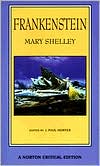Poetics of Relation
Édouard Glissant, long recognized in the French and francophone world as one of the greatest writers and thinkers of our times, is increasingly attracting attention from English-speaking readers. Born in Martinique in 1928, Glissant earned a doctorate from the Sorbonne. When he returned to his native land in the mid-sixties, his writing began to focus on the idea of a "relational poetics," which laid the groundwork for the "créolité" movement, fueled by the understanding that Caribbean...
Search in google:
A major work by this prominent Caribbean author and philosopher, available for the first time in English
Poetics of Relation\ \ By ÉDOUARD GLISSANT \ The University Of Michigan Press\ Copyright © 1997 University of Michigan\ All right reserved.\ ISBN: 978-0-472-06629-2 \ \ \ Chapter One\ The Open Boat \ For the Africans who lived through the experience of deportation to the Americas, confronting the unknown with neither preparation nor challenge was no doubt petrifying.\ The first dark shadow was cast by being wrenched from their everyday, familiar land, away from protecting gods and a tutelary community. But that is nothing yet. Exile can be borne, even when it comes as a bolt from the blue. The second dark of night fell as tortures and the deterioration of person, the result of so many incredible Gehennas. Imagine two hundred human beings crammed into a space barely capable of containing a third of them. Imagine vomit, naked flesh, swarming lice, the dead slumped, the dying crouched. Imagine, if you can, the swirling red of mounting to the deck, the ramp they climbed, the black sun on the horizon, vertigo, this dizzying sky plastered to the waves. Over the course of more than two centuries, twenty, thirty million people deported. Worn down, in a debasement more eternal than apocalypse. But that is nothing yet.\ What is terrifying partakes of the abyss, three times linked to the unknown. First, the time you fell into the belly of the boat. For, in your poetic vision, a boat has no belly; a boat does not swallow up, does not devour; a boat is steered by open skies. Yet, the belly of this boat dissolves you, precipitates you into a nonworld from which you cry out. This boat is a womb, a womb abyss. It generates the clamor of your protests; it also produces all the coming unanimity. Although you are alone in this suffering, you share in the unknown with others whom you have yet to know. This boat is your womb, a matrix, and yet it expels you. This boat: pregnant with as many dead as living under sentence of death.\ The next abyss was the depths of the sea. Whenever a fleet of ships gave chase to slave ships, it was easiest just to lighten the boat by throwing cargo overboard, weighing it down with balls and chains. These underwater signposts mark the course between the Gold Coast and the Leeward Islands. Navigating the green splendor of the sea—whether in melancholic transatlantic crossings or glorious regattas or traditional races of yoles and gommiers—still brings to mind, coming to light like seaweed, these lowest depths, these deeps, with their punctuation of scarcely corroded balls and chains. In actual fact the abyss is a tautology: the entire ocean, the entire sea gently collapsing in the end into the pleasures of sand, make one vast beginning, but a beginning whose time is marked by these balls and chains gone green.\ But for these shores to take shape, even before they could be contemplated, before they were yet visible, what sufferings came from the unknown! Indeed, the most petrifying face of the abyss lies far ahead of the slave ship's bow, a pale murmur; you do not know if it is a storm cloud, rain or drizzle, or smoke from a comforting fire. The banks of the river have vanished on both sides of the boat. What kind of river, then, has no middle? Is nothing there but straight ahead? Is this boat sailing into eternity toward the edges of a nonworld that no ancestor will haunt?\ Paralleling this mass of water, the third metamorphosis of the abyss thus projects a reverse image of all that had been left behind, not to be regained for generations except—more and more threadbare—in the blue savannas of memory or imagination.\ The asceticism of crossing this way the land-sea that, unknown to you, is the planet Earth, feeling a language vanish, the word of the gods vanish, and the sealed image of even the most everyday object, of even the most familiar animal, vanish. The evanescent taste of what you ate. The hounded scent of ochre earth and savannas.\ "Je te salue, vieil Océan!" You still preserve on your crests the silent boat of our births, your chasms are our own unconscious, furrowed with fugitive memories. Then you lay out these new shores, where we hook our tar-streaked wounds, our reddened mouths and stifled outcries.\ Experience of the abyss lies inside and outside the abyss. The torment of those who never escaped it: straight from the belly of the slave ship into the violet belly of the ocean depths they went. But their ordeal did not die; it quickened into this continuous/discontinuous thing: the panic of the new land, the haunting of the former land, finally the alliance with the imposed land, suffered and redeemed. The unconscious memory of the abyss served as the alluvium for these metamorphoses. The populations that then formed, despite having forgotten the chasm, despite being unable to imagine the passion of those who foundered there, nonetheless wove this sail (a veil). They did not use it to return to the Former Land but rose up on this unexpected, dumbfounded land. They met the first inhabitants, who had also been deported by permanent havoc; or perhaps they only caught a whiff of the ravaged trail of these people. The land-beyond turned into land-in-itself. And this undreamt of sail, finally now spread, is watered by the white wind of the abyss. Thus, the absolute unknown, projected by the abyss and bearing into eternity the womb abyss and the infinite abyss, in the end became knowledge.\ Not just a specific knowledge, appetite, suffering, and delight of one particular people, not only that, but knowledge of the Whole, greater from having been at the abyss and freeing knowledge of Relation within the Whole.\ Just as the first uprooting was not marked by any defiance, in the same way the prescience and actual experience of Relation have nothing to do with vanity. Peoples who have been to the abyss do not brag of being chosen. They do not believe they are giving birth to any modern force. They live Relation and clear the way for it, to the extent that the oblivion of the abyss comes to them and that, consequently, their memory intensifies.\ For though this experience made you, original victim floating toward the sea's abysses, an exception, it became something shared and made us, the descendants, one people among others. Peoples do not live on exception. Relation is not made up of things that are foreign but of shared knowledge. This experience of the abyss can now be said to be the best element of exchange.\ For us, and without exception, and no matter how much distance we may keep, the abyss is also a projection of and a perspective into the unknown. Beyond its chasm we gamble on the unknown. We take sides in this game of the world. We hail a renewed Indies; we are for it. And for this Relation made of storms and profound moments of peace in which we may honor our boats.\ This is why we stay with poetry. And despite our consenting to all the indisputable technologies; despite seeing the political leap that must be managed, the horror of hunger and ignorance, torture and massacre to be conquered, the full load of knowledge to be tamed, the weight of every piece of machinery that we shall finally control, and the exhausting flashes as we pass from one era to another—from forest to city, from story to computer—at the bow there is still something we now share this murmur, cloud or rain or peaceful smoke. We know ourselves as part and as crowd, in an unknown that does not terrify. We cry our cry of poetry. Our boats are open, and we sail them for everyone.\ Errantry, Exile\ Roots make the commonality of errantry and exile, for in both instances roots are lacking. We must begin with that.\ Gilles Deleuze and Felix Guattari criticized notions of the root and, even perhaps, notions of being rooted. The root is unique, a stock taking all upon itself and killing all around it. In opposition to this they propose the rhizome, an enmeshed root system, a network spreading either in the ground or in the air, with no predatory rootstock taking over permanently. The notion of the rhizome maintains, therefore, the idea of rootedness but challenges that of a totalitarian root. Rhizomatic thought is the principle behind what I call the Poetics of Relation, in which each and every identity is extended through a relationship with the Other.\ These authors extol nomadism, which supposedly liberates Being, in contrast, perhaps, to a settled way of life, with its law based upon the intolerant root. Already Kant, at the beginning of Critique of Pure Reason, had seen similarities between skeptics and nomads, remarking also that, from time to time, "they break the social bond." He seems thus to establish correlations between, on the one hand, a settled way of life, truth, and society and, on the other, nomadism, skepticism, and anarchy. This parallel with Kant suggests that the rhizome concept appears interesting for its anticonformism, but one cannot infer from this that it is subversive or that rhizomatic thought has the capacity to overturn the order of the world—because, by so doing, one reverts to ideological claims presumably challenged by this thought.\ But is the nomad not overdetermined by the conditions of his existence? Rather than the enjoyment of freedom, is nomadism not a form of obedience to contingencies that are restrictive? Take, for example, circular nomadism: each time a portion of the territory is exhausted, the group moves around. Its function is to ensure the survival of the group by means of this circularity. This is the nomadism practiced by populations that move from one part of the forest to another, by the Arawak communities who navigated from island to island in the Caribbean, by hired laborers in their pilgrimage from farm to farm, by circus people in their peregrinations from village to village, all of whom are driven by some specific need to move, in which daring or aggression play no part. Circular nomadism is a not-intolerant form of an impossible settlement.\ Contrast this with invading nomadism, that of the Huns, for example, or the Conquistadors, whose goal was to conquer lands by exterminating their occupants. Neither prudent nor circular nomadism, it spares no effect. It is an absolute forward projection an arrowlike nomadism. But the descendants of the Huns, Vandals, or Visigoths, as indeed those of the Conquistadors, who established their clans, settled down bit by bit, melting into their conquests. Arrowlike nomadism is a devastating desire for settlement.\ Neither in arrowlike nomadism nor in circular nomadism are roots valid. Before it is won through conquest, what "holds" the invader is what lies ahead; moreover, one could almost say that being compelled to lead a settled way of life would constitute the real uprooting of a circular nomad. There is, furthermore, no pain of exile bearing down, nor is there the wanderlust of errantry growing keener. Relation to the earth is too immediate or too plundering to be linked with any preoccupation with identity—this claim to or consciousness of a lineage inscribed in a territory. Identity will be achieved when communities attempt to legitimate their right to possession of a territory through myth or the revealed word. Such an assertion can predate its actual accomplishment by quite some time. Thus, an often and long contested legitimacy will have multiple forms that later will delineate the afflicted or soothing dimensions of exile or errantry.\ In Western antiquity a man in exile does not feel he is helpless or inferior, because he does not feel burdened with deprivation—of a nation that for him does not yet exist. It even seems, if one is to believe the biographies of numerous Greek thinkers including Plato and Aristotle, that some experience of voyaging and exile is considered necessary for a being's complete fulfillment. Plato was the first to attempt to base legitimacy not on community within territory (as it was before and would be later) but on the City in the rationality of its laws. This at a time when his city, Athens, was already threatened by a "final" deregulation.\ In this period identification is with a culture (conceived of as civilization), not yet with a nation. The pre-Christian West along with pre-Columbian America, Africa of the time of the great conquerors, and the Asian kingdoms all shared this mode of seeing and feeling. The relay of actions exerted by arrowlike nomadism and the settled way of life were first directed against generalization (the drive for an identifying universal as practiced by the Roman Empire). Thus, the particular resists a generalizing universal and soon begets specific and local senses of identity, in concentric circles (provinces then nations). The idea of civilization, bit by bit, helps hold together opposites, whose only former identity existed in their opposition to the Other.\ During this period of invading nomads the passion for self-definition first appears in the guise of personal adventure. Along the route of their voyages conquerors established empires that collapsed at their death. Their capitals went where they went. "Rome is no longer in Rome, it is wherever I am." The root is not important. Movement is. The idea of errantry, still inhibited in the face of this mad reality, this too-functional nomadism, whose ends it could not know, does not yet make an appearance. Center and periphery are equivalent. Conquerors are the moving, transient root of their people.\ The West, therefore, is where this movement becomes fixed and nations declare themselves in preparation for their repercussions in the world. This fixing, this declaration, this expansion, all require that the idea of the root gradually take on the intolerant sense that Deleuze and Guattari, no doubt, meant to challenge. The reason for our return to this episode in Western history is that it spread throughout the world. The model came in handy. Most of the nations that gained freedom from colonization have tended to form around an idea of power—the totalitarian drive of a single, unique root—rather than around a fundamental relationship with the Other. Culture's self-conception was dualistic, pitting citizen against barbarian. Nothing has ever more solidly opposed the thought of errantry than this period in human history when Western nations were established and then made their impact on the world.\ At first this thought of errantry, bucking the current of nationalist expansion, was disguised "within" very personalized adventures—just as the appearance of Western nations had been preceded by the ventures of empire builders. The errantry of a troubadour or that of Rimbaud is not yet a thorough, thick (opaque) experience of the world, but it is already an arrant, passionate desire to go against a root. The reality of exile during this period is felt as a (temporary) lack that primarily concerns, interestingly enough, language. Western nations were established on the basis of linguistic intransigence, and the exile readily admits that he suffers most from the impossibility of communicating in his language. The root is monolingual. For the troubadour and for Rimbaud errantry is a vocation only told via detour. The call of Relation is heard, but it is not yet a fully present experience.\ However, and this is an immense paradox, the great founding books of communities, the Old Testament, the Iliad, the Odyssey, the Chansons de Geste, the Islandic Sagas, the Aeneid, or the African epics, were all books about exile and often about errantry. This epic literature is amazingly prophetic. It tells of the community, but, through relating the community's apparent failure or in any case its being surpassed, it tells of errantry as a temptation (the desire to go against the root) and, frequently, actually experienced. Within the collective books concerning the sacred and the notion of history lies the germ of the exact opposite of what they so loudly proclaim. When the very idea of territory becomes relative, nuances appear in the legitimacy of territorial possession. These are books about the birth of collective consciousness, but they also introduce the unrest and suspense that allow the individual to discover himself there, whenever he himself becomes the issue. The Greek victory in the Iliad depends on trickery; Ulysses returns from his Odyssey and is recognized only by his dog; the Old Testament David bears the stain of adultery and murder; the Chanson de Roland is the chronicle of a defeat; the characters in the Sagas are branded by an unstemmable fate, and so forth. These books are the beginning of something entirely different from massive, dogmatic, and totalitarian certainty (despite the religious uses to which they will be put). These are books of errantry, going beyond the pursuits and triumphs of rootedness required by the evolution of history.\ (Continues...)\ \ \ \ \ Excerpted from Poetics of Relation by ÉDOUARD GLISSANT Copyright © 1997 by University of Michigan . Excerpted by permission of The University Of Michigan Press. All rights reserved. No part of this excerpt may be reproduced or reprinted without permission in writing from the publisher.\ Excerpts are provided by Dial-A-Book Inc. solely for the personal use of visitors to this web site. \ \
Contents\ Translator's Introduction, Betsy Wing....................xi\ Glossary....................xxi\ The Open Boat....................5\ Errantry, Exile....................11\ Poetics....................23\ A Rooted Errantry....................37\ Repetitions....................45\ Expanse and Filiation....................47\ Closed Place, Open Word....................63\ Concerning a Baroque Abroad in the World....................77\ Concerning the Poem's Information....................81\ Creolizations....................89\ Dictate, Decree....................91\ To Build the Tower....................103\ Transparency and Opacity....................111\ The Black Beach....................121\ Relation....................131\ The Relative and Chaos....................133\ Distancing, Determining....................141\ That That....................159\ Relinked, (Relayed), Related....................169\ Generalization....................183\ That Those Beings Be Not Being....................185\ For Opacity....................189\ Open Circle, Lived Relation....................195\ The Burning Beach....................205\ Notes....................211\ References....................225








